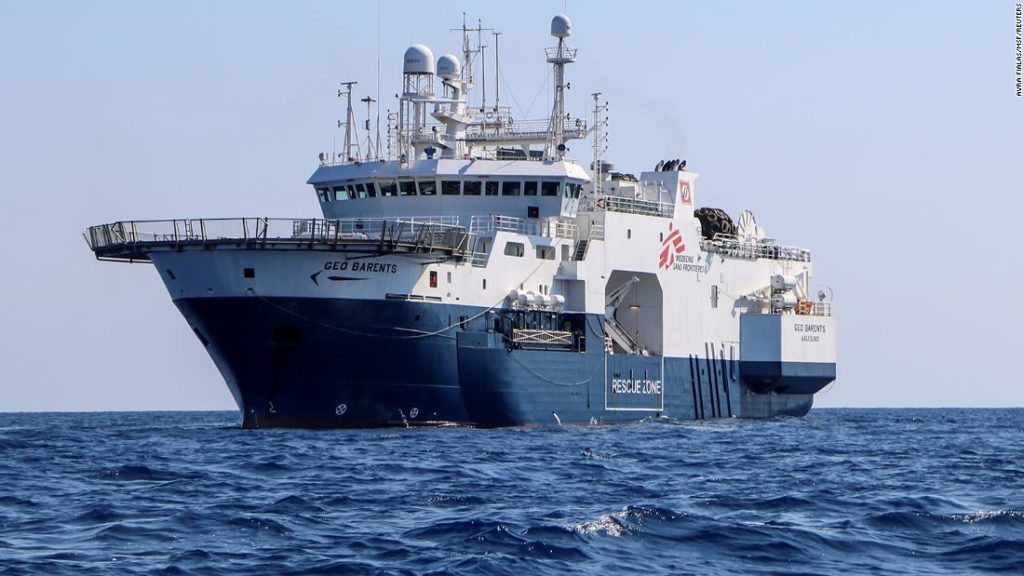In a press release Sunday, the organization called for the “swift release” of its search and rescue vessel “Geo Barents,” which was detained by authorities on administrative grounds in the port of Augusta, Sicily, on July 2.
According to the Italian Coast Guard, the seizure was the result of a “periodic inspection” required for foreign ships docking in Italian ports, which “highlighted various technical irregularities that could compromise the safety of the crew and of the people on board.”
The ship did not have a sufficient amount of life saving equipment on board, such as rafts and life belts, the Coast Guard statement said. During a 14-hour inspection of the vessel, officials found 22 issues overall — 10 of which were grounds for the ship to be detained, it also said.
MSF has said that it is “ready to make all the necessary adjustments.” However, MSF’s search and rescue representative, Duccio Staderini, also claimed that inspections of NGO vessels in Italian ports are “long and thorough, aiming at finding irregularities in order to prevent the ship from returning to sea to save lives.
“We are faced with a crushing reality: while humanitarian NGO vessels are detained, lives continue to be needlessly lost in the Mediterranean,” he added.
Italy has borne the brunt of migrants landing on European shores, with over 10,400 arrivals in the country in 2021, the UNHCR added.
You may also like
-
Afghanistan: Civilian casualties hit record high amid US withdrawal, UN says
-
How Taiwan is trying to defend against a cyber ‘World War III’
-
Pandemic travel news this week: Quarantine escapes and airplane disguises
-
Why would anyone trust Brexit Britain again?
-
Black fungus: A second crisis is killing survivors of India’s worst Covid wave

